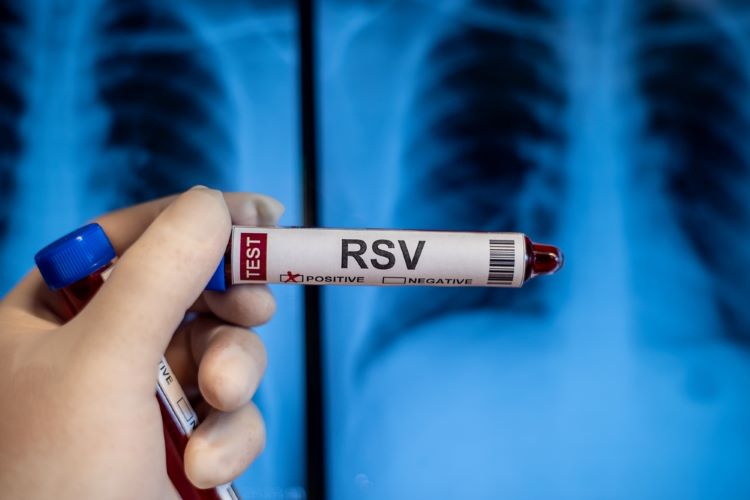Beyfortus approved for US infants against RSV disease
Posted: 18 July 2023 | Catherine Eckford (European Pharmaceutical Review) | No comments yet
The only monoclonal antibody approved for passive immunisation to protect infants in their first RSV season has been approved by the US Food and Drug Administration (FDA).


The first preventive option authorised to protect a broad infant population against respiratory syncytial virus (RSV) lower respiratory tract disease (LRTD) has been approved by the US Food and Drug Administration (FDA). Monoclonal antibody (mAb) treatment Beyfortus (nirsevimab-alip) has been jointly developed by AstraZeneca and Sanofi.
Beyfortus is indicated for newborns and infants up to 24 months, who are healthy at term, or preterm. Those who born during or entering their first RSV season, who remain vulnerable to severe RSV disease through their second RSV season are eligible for treatment.
Approval follows the positive recommendation by the Antimicrobial Drugs Advisory Committee (AMDAC) on the favourable benefit-risk profile of Beyfortus. The decision was based data from three pivotal late-stage clinical trials. Across all clinical endpoints, results demonstrated a single dose of Beyfortus had consistent efficacy against RSV LRTD extending through five months. This is the duration of a typical RSV season.
Iskra Reic, Executive Vice President for Vaccines and Immune Therapies at AstraZeneca commented: “Beyfortus represents an opportunity for a paradigm-shift in preventing serious respiratory disease due to RSV across a broad infant population in the US.”
“[As] the only monoclonal antibody approved for passive immunisation to provide safe and effective protection for all infants during their first RSV season,” Thomas Triomphe, Executive Vice President of Vaccines at Sanofi acknowledged the treatment as a “potential game-changer”.
Key data from the clinical trials for Beyfortus
Results of MELODY, MEDLEY Phase II/III and the Phase IIb clinical trials demonstrated that a single dose of Beyfortus helped to protect infants during their first RSV season against RSV disease.
The Phase IIb (Trial 03) trial showed that Beyfortus reduced the incidence of medically attended LRTI caused by RSV by 70.1 percent compared to placebo as a primary endpoint. As a prespecified secondary endpoint, Beyfortus reduced medically attended RSV LRTI with hospitalisation by 78.4 percent versus placebo.
The study was designed to measure the efficacy of Beyfortus through 150 days post-dose. Healthy preterm infants of 29 to less than 35 weeks’ gestational age were randomised 2:1 to receive a single 50mg intramuscular injection of Beyfortus or placebo.
In MELODY Phase III study (Trial 04), Beyfortus demonstrated an ability to reduce the incidence of medically attended LRTI, such as bronchiolitis or pneumonia, caused by RSV by 74.9 percent compared to placebo. Design of the trial was the same as the Phase IIb trial but evaluated healthy term and late preterm infants (35 weeks gestational age or greater) entering their first RSV season.
MEDLEY (Trial 05) was a Phase II/III was Synagis-controlled and assessed safety and tolerability of Beyfortus in preterm infants with a gestational age of less than 35 weeks and infants with congenital heart disease (CHD) and/or chronic lung disease of prematurity (CLD) eligible to receive Synagis.
The BLA for Beyfortus was accepted by the FDA in January 2023.
Related topics
Big Pharma, Biopharmaceuticals, Clinical Development, Clinical Trials, Data Analysis, Dosage, Drug Development, Immunisation, Industry Insight, Regulation & Legislation, Research & Development (R&D), Therapeutics
Related organisations
AstraZeneca, Sanofi, The US Food and Drug Administration (FDA)









